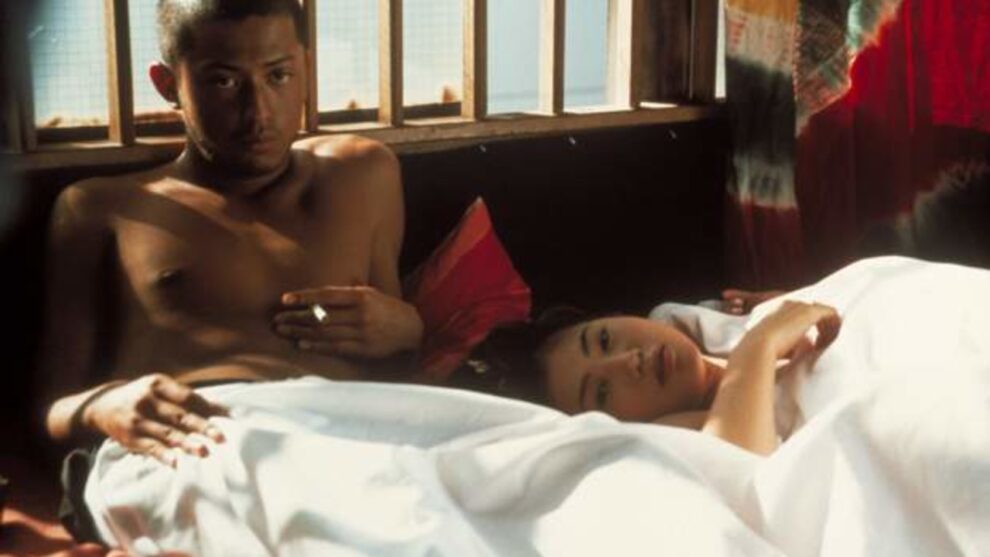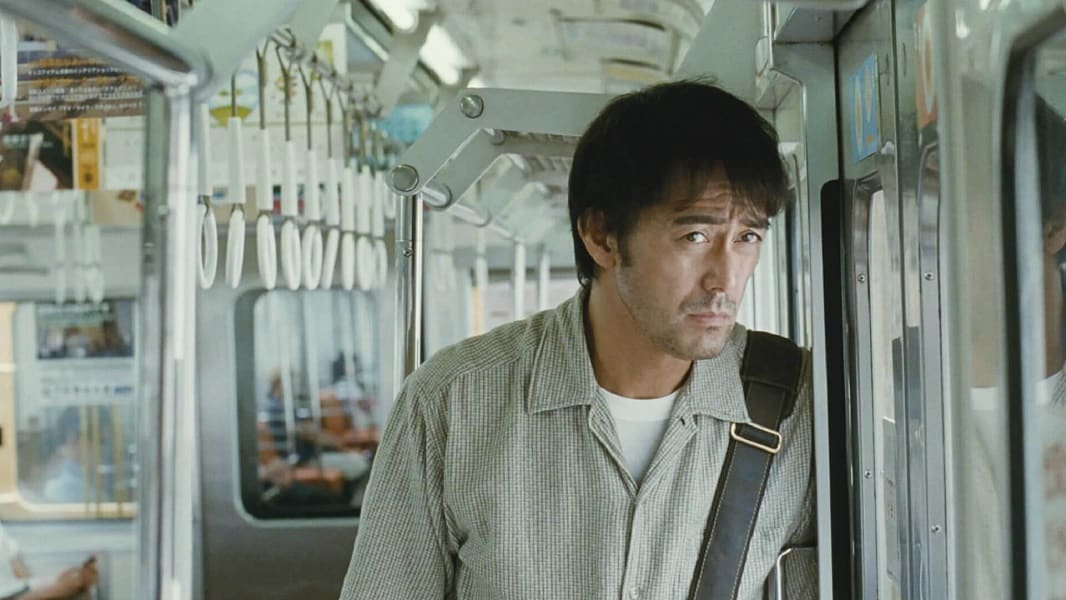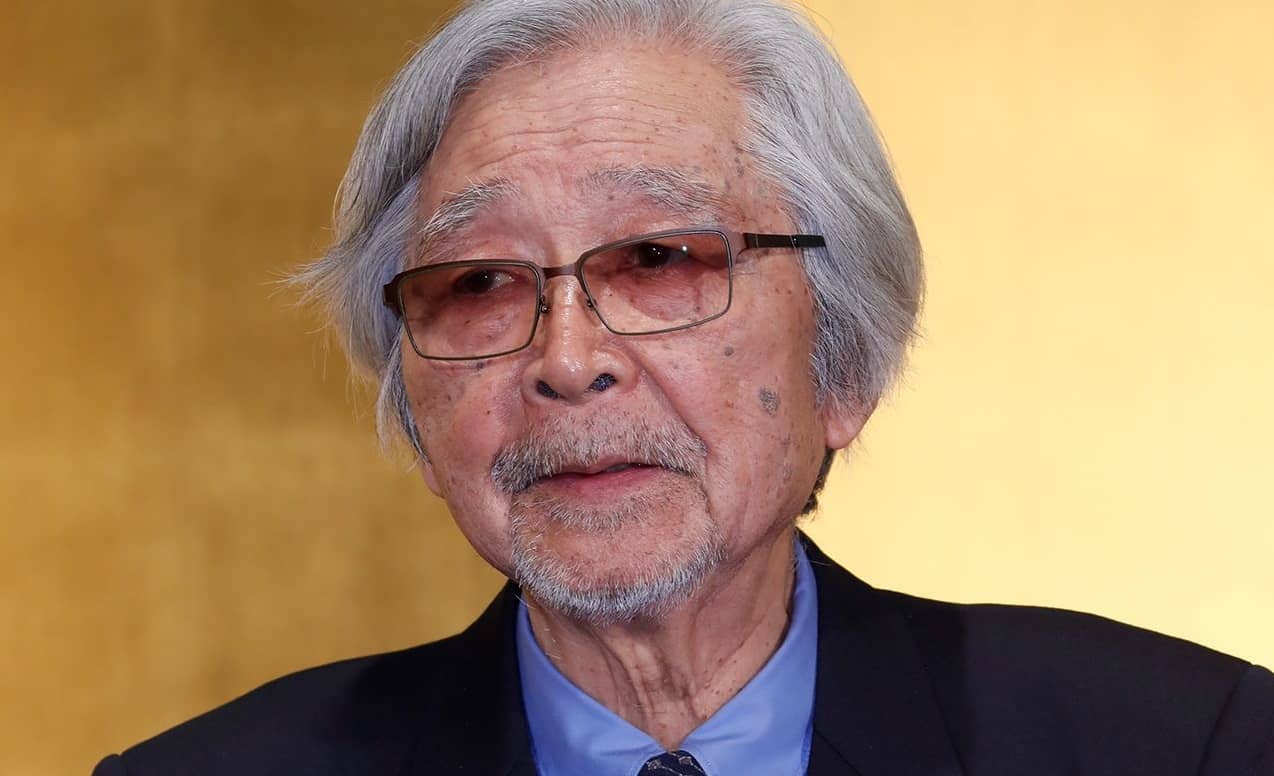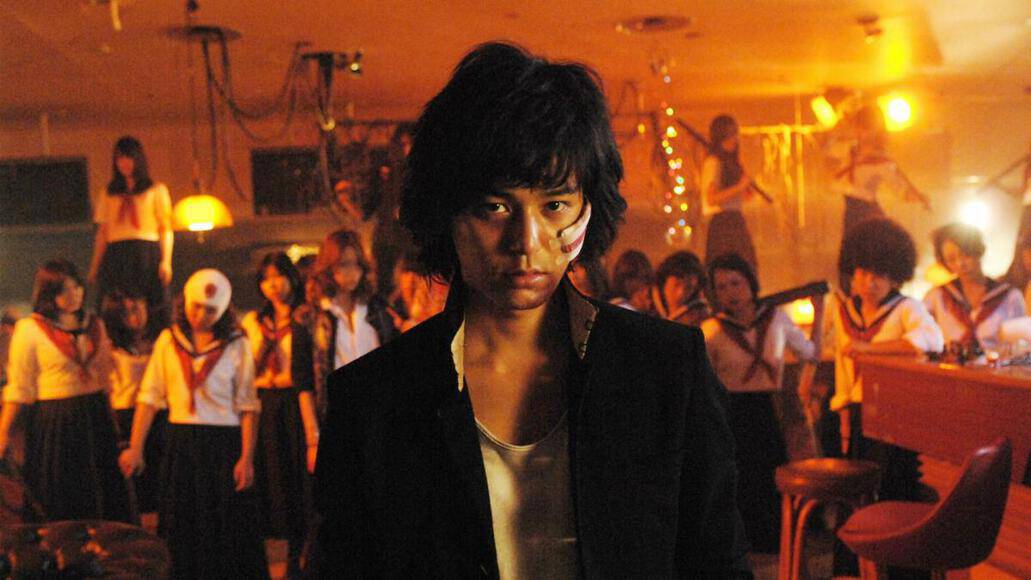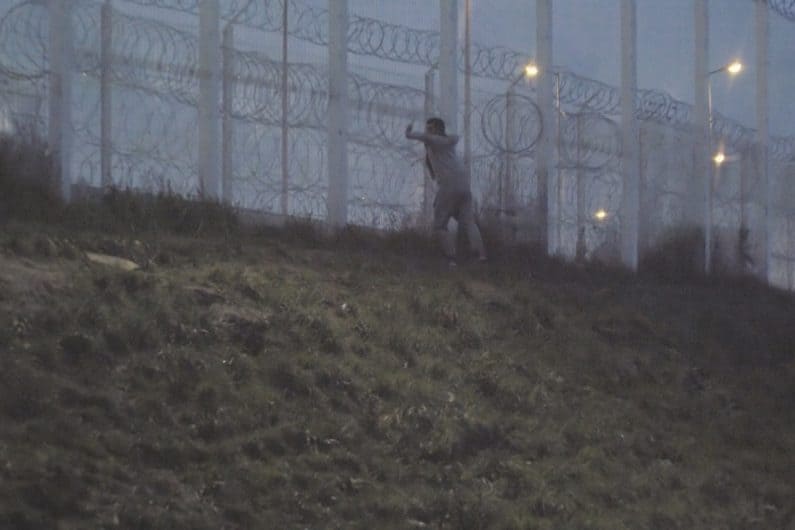For many cinephiles, especially those with a keen interest in Asian cinema, one of their first encounters with Japanese cinema comes in the shape of Takashi Miike's works. Given the sheer number of features he has made ever since he got started at the beginning of the 1990s, this comes as no surprise. Movies such as “Ichi – The Killer”, “Dead or Alive” and “Audition” have cemented the reputation of Miike internationally and introduced many to his cinematic style, which has proven to very influential among his colleagues as well. However, with over 100 films directed, there are obviously a number of them which are either simply bad (“Salaryman Kintaro”) or have gone under the radar as Miike's more popular works cast a shadow over them. One of these examples is “Blues Harp”, which is not only an overlooked gem in his filmography, but also, in my opinion, one of the best features he has ever directed.
The story is about Kenji, a yakuza, who struggles to make a name for himself within the ranks of his clan, and who is forced to flee from the hitmen of a rivaling faction. During his escape, he runs into Shuji, a local bartender and son to a Japanese mother and African-American soldier, and finds someone who is just as much of an outsider as he is. The two form a bond, which proves to be a solace for both of them, but also a source of their demise, as the conflict with the rival gangsters further escalates.
To me, “Blues Harp” shows a different side to Takashi Miike, which has been there from the start of his career, but which is rarely acknowledged. While the theme of the outsider is present in many of his features, “Blues Harp” is a melancholic, violent drama on the repercussions of the feeling of being an outcast. Both, Hiroyuki Ikeuchi (as Shuji) and Seeichi Tanabe (as Kenji) play two men from different places within the criminal hierarchy, and both have failed to establish a meaningful connection with their surroundings as well as the people around them, labeling them as outsiders. The only difference seemingly between the two is that one of them has come to terms with his situation, whereas the other one fights for this place among the ranks of a criminal family, desperately searching for some kind of affirmation and acceptance.
Aesthetically, Miike employs a similar style as in many of his features in the 1990s. The DV-camera highlights the melancholia within the characters as well as the general atmosphere of disillusionment and being ostracized. Hideo Yamamoto's cinematography shows the isolation of the two main characters, their longing and the brutality of the place they live in, which will surely catch up to them one day. With regards to the character of Kenji, it adds to the feeling of a violent fate awaiting those who will try to change the order of things, demanding their place within this merciless world they call home.
“Blues Harp” is a feature highly recommended to those viewers who would like to see a different side to Takashi Miike, and wiling to explore a (sadly) still underappreciated part of his filmography.


